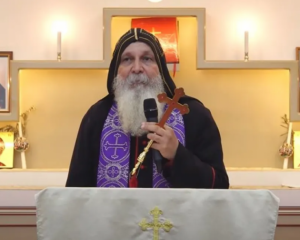European nations and the United States, as well as some celebrities, have voiced sharp criticism of Russia over jail sentences handed to three members of the punk band Pussy Riot who protested against President Vladimir Putin in a church.
Catherine Ashton, the European Union's foreign policy chief, said the two-year sentences give to the women were "disproportionate" to the crime and added to the intimidation of opposition activists in Russia.
The United States expressed disappointment over the verdict and also called the sentences disproportionate.
The three women were convicted of hooliganism motivated by religious hatred for performing a "punk prayer" in Moscow's Christ the Saviour Cathedral in which they called on the Virgin Mary to rid Russia of President Vladimir Putin.
"Together with the reports of the band members' mistreatment during pre-trial detention and the reported irregularities of the trial, it (the verdict) puts a serious question mark over Russia's respect for international obligations of fair, transparent and independent legal process," Ashton said.
"This case adds to the recent upsurge in politically motivated intimidation and prosecution of opposition activists in the Russian Federation, a trend that is of growing concern to the European Union," she said in a statement.
Human rights groups urged Russian authorities to overturn the verdict and free the three women, Nadezhda Tolokonnikova, 22, Maria Alyokhina, 24, and Yekaterina Samutsevich, 30.
In Washington, White House spokesman Josh Earnest said in a statement: "While we understand the group's behaviour was offensive to some, we have serious concerns about the way that these young women have been treated by the Russian judicial system."
The Pussy Riot case, seen as a test of the extent of Putin's tolerance of dissent, has added to the strain already placed on relations between Moscow and European governments by their opposed positions on the crisis in Syria.
German Chancellor Angela Merkel said the sentence was "excessively harsh" and "not compatible with the European values of the rule of law and democracy to which Russia, as a member of the Council of Europe, has committed itself."
"A dynamic civil society and politically active citizens are a necessary precondition for Russia's modernisation, not a threat," she said.
British Foreign Minister Alistair Burt said in a statement that the verdict "calls into question Russia's commitment to protect fundamental rights and freedoms."
'OUTRAGEOUS'
Although celebrities such as Madonna, who had spoken out against the charges previously, did not comment on Friday, others took to Twitter to voice their concern.
Rocker Bryan Adams tweeted "Outrageous ... Russian singers jailed just for speaking their mind?"
On his Twitter account, "Lord of the Rings" actor Elijah Wood posted "a shame to hear the Pussy Riot were found guilty, but not surprised."
Amnesty International said the trial was politically motivated and the women were wrongfully prosecuted for a legitimate, if potentially offensive, protest action, adding that the verdict was "a bitter blow to freedom of expression" in Russia.
Amnesty "considers all three activists to be prisoners of conscience, detained solely for the peaceful expression of their beliefs," it said in a statement.
"The Russian authorities should overturn the court ruling and release the members of Pussy Riot immediately and unconditionally," said John Dalhuisen, director of Amnesty International's Europe and Central Asia Programme.
Europe's main security and rights body, the Organization for Security and Cooperation in Europe, said the verdict was part of a growing tendency towards curbing freedom of expression.
"I see a trend in various countries where the authorities, social and religious groups and courts are taking a more restrictive stance on content considered to be offensive, morally questionable or dangerous for children," said Dunja Mijatovic, the OSCE in Europe's Representative on Freedom of the Media.
"Most of the time it is a pretext for censoring content that is simply not mainstream and critical," Mijatovic said.












